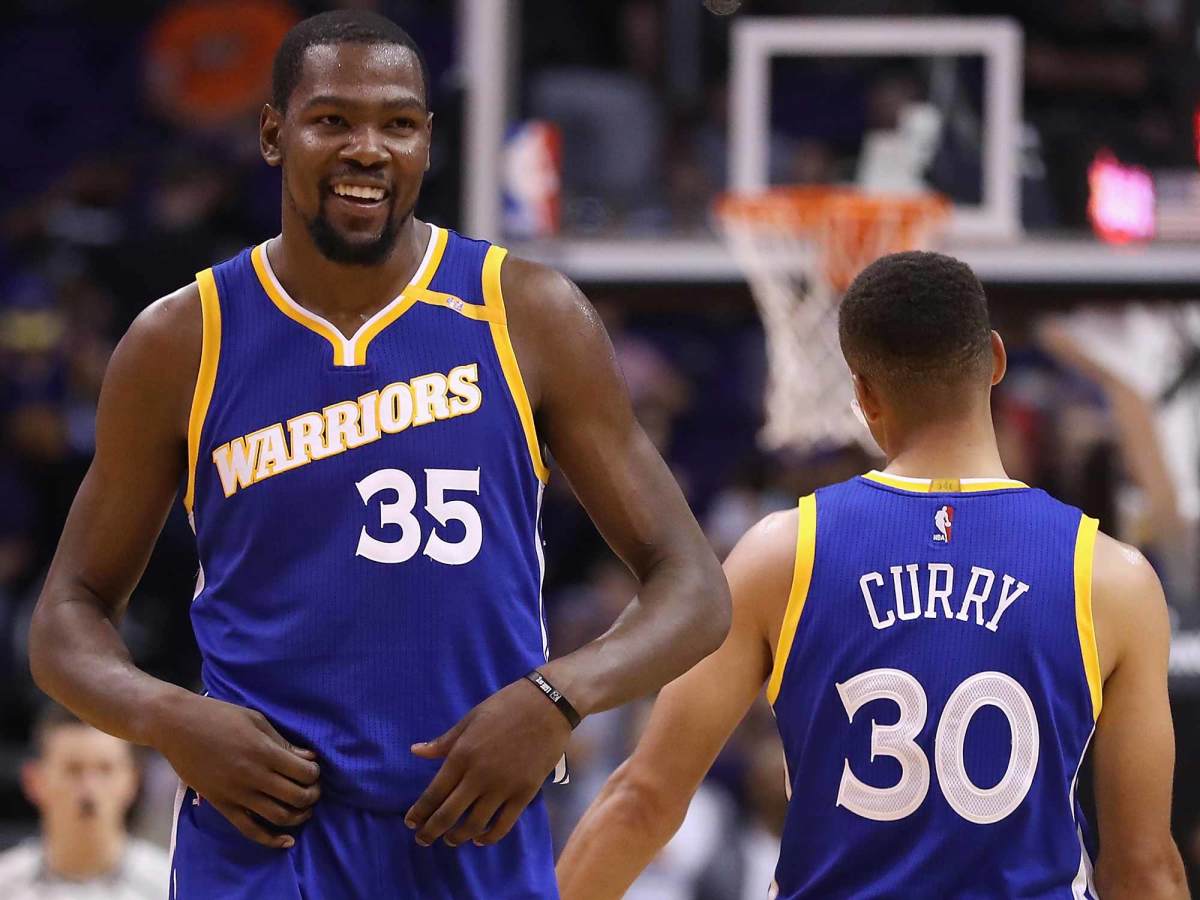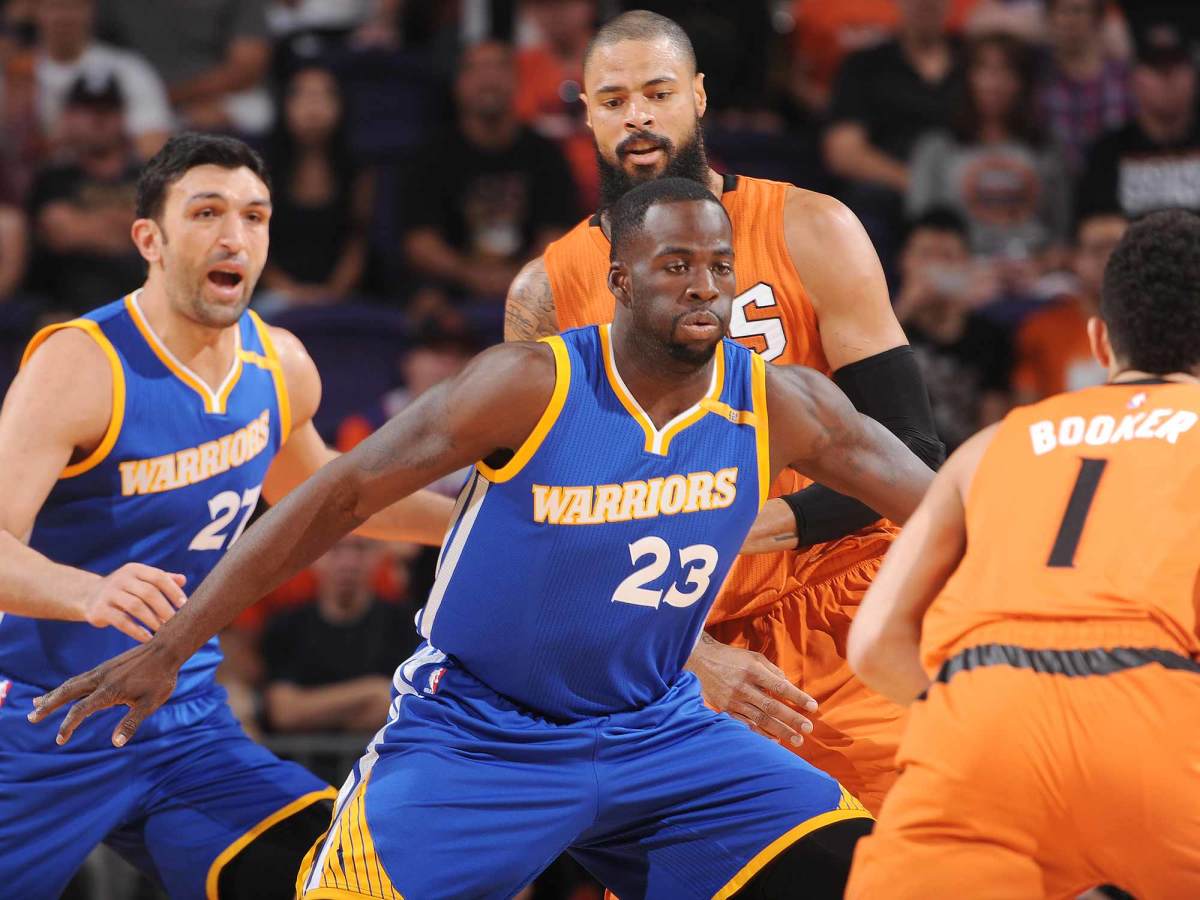The Search For Peak Warriors

If there is one thing we can take away from Golden State's slow start, it's this: Achieving Peak Warriors was never easy. It just seemed so because Golden State made it look so effortless last season. The easiest way to comprehend a team scorching its way to the most dominant regular season in NBA history is to believe its success is a force of nature. Arranging Stephen Curry, Draymond Green, Klay Thompson, Andre Iguodala, and Harrison Barnes in such a way could only yield a power beyond control—a simple, potent reaction of the elements involved.
Yet there's a reason why the 'Death Lineup'—the very best that the Warriors could be—was always untenable when stretched out over a long enough timeline. Steve Kerr attempted to limit its minutes however he could. Playing that way required Green to maintain extreme, unwavering intensity while operating with a clear head. It demanded that Curry sprint hard around screens, carry an offense, and still dial up his effort on defense to create turnovers. It called on Iguodala to handle any night's most dangerous defensive assignment while also playing above his weight class as a rebounder. Barnes defended bigger, stronger players almost exclusively. Thompson could rarely find a still moment between his weaving around the floor to apply constant pressure and guarding so many ball handlers on the other end.
Those burdens shift and alleviate when replacing Barnes with Kevin Durant, but they do not vanish. This is still a team that has to maintain its edge for its defense to function. And without Andrew Bogut or Festus Ezeli around to offer stylistic relief, the Warriors are more reliant than ever on the precarious balance of smaller lineups. When it works, no team in the league can keep up. When it doesn't, the fiber of Golden State's switching can tear and the offense can stall enough for a juggernaut to be tested.

The Warriors flunked that test on opening night and have largely skated by on talent since. From their mistakes has come a certain stiffness; errors will always be part of the deal for a team this fast and freewheeling, but Golden State has compounded its problems by alternating between carelessness and overthought. The possession following a painful turnover will see capable playmakers wait out a lightly contested passing angle for so long that it disappears. This is a team that both plays as if it has taken certain things for granted—transition defense and rebounding, above all—and yet has sputtered in the process of correction.
Will Blake Griffin Be Next Summer's KD?
It won't last. The pillars of one of the NBA's best and most versatile defenses won't continue to bungle routine switches. The turnovers might persist but their damage will be mitigated once the Warriors commit to getting back more consistently. So much of what ails Golden State, too, would be disguised if they could make a damn shot. As one might expect given their changes in personnel, the Warriors are actually creating more open looks than they did a season ago. Yet after posting an effective field goal percentage of 62.3% on those unguarded attempts last year (second-best in the league according to Synergy Sports), the Warriors are somehow shooting 41.7% on them this time around. That's the fifth-worst mark of any team. Assuming we could reasonably expect Golden State to shoot a similar percentage on those looks to what they did last year, unguarded spot-up shooting alone has already cost the Warriors around 30 points. The level of play against New Orleans and Phoenix was uneven at best, yet those games could have been easily blown open in the space of a few made threes.

Thompson, in particular, cannot possibly be expected to carry on like this. His three-point shooting in the first four games of the season is as follows: 1-for-6; 2-for-9; 0-for-6; 0-for-7. Regression to the mean will come hard and fast. When it does, so much with the Warriors will seem right again—just as Curry's return to form course-corrected a dogfight against the Blazers into a 23-point blowout. Golden State scoring as it should will paper over the fact that this season is a process. Part of that process, it seems, involves recalling just what it took to make history.
The Biggest Stop Of Kevin Love's Life? It Wasn't This One
The center rotation will be a wild card every night. Team rebounding will have to be a pressing concern. Durant's integration will be gradual; his sensational play thus far has come almost independently of the Warriors' system. Kerr is feeling out the limits and synergies of this particular group of players, with all the freedom that having two legitimate superstars (and two more supporting stars) allows. Still: this is every bit an all-time team in the making, if one that bears a reminder of how precarious the game can be. There's a reason why Curry's knee injury in the 2016 postseason was so humbling. Even a slight snag threw off Golden State's balance just enough for Cleveland to claw its way to the title.
There were nights throughout the back half of last season when the Warriors would play half-hearted defense or reckless offense and it didn't matter. All it took was one good quarter—or even one opportune run—to remove all doubt. Those games will probably come for this team in time, but they shouldn't erase the fact that the Warriors, however briefly, lost themselves. They fielded one of the most impressive collections of skill and talent the league had ever seen and let slip the details that made them so overwhelming in the first place.
A reminder like that can light a fire. This one, it seems, sparked just in time for a reunion with the combustible Russell Westbrook and the scorched earth franchise Durant left behind.
